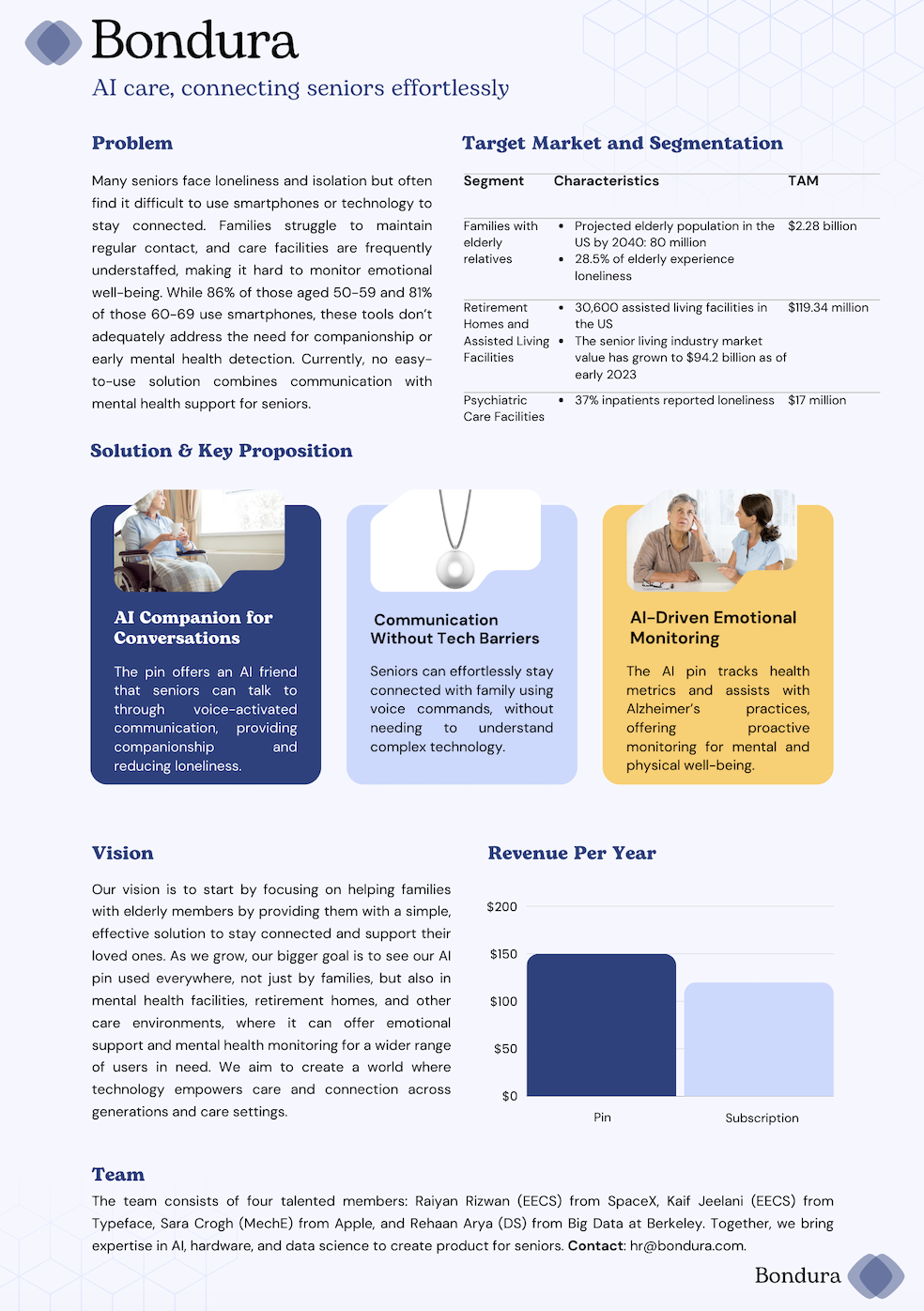Project Overview
Bondura began as a 16-week entrepreneurship project at UC Berkeley, where our team of four identified a critical gap in senior care technology. Through extensive market research and user interviews, we discovered that 43% of seniors face isolation, yet existing solutions like smart speakers and complex apps fail to address their needs. Our approach was fundamentally different: create technology that feels invisible to the user while providing powerful capabilities underneath.
The project showcased my ability to lead product strategy, conduct market analysis, and coordinate cross-functional teams under tight deadlines. We validated our assumptions through partnerships with real retirement homes, developed comprehensive financial projections, and created a scalable business model that attracted genuine investor interest. By the semester's end, we had transformed an academic exercise into a viable startup concept with clear paths to market and measurable social impact.
